Yesterday, 27 October 2021, marks the 23rd anniversary of the signing into law of the International Religious Freedom Act of 1998 by former President Bill Clinton, a day which we celebrate as the International Religious Freedom Day. In addition to emphasizing the United States’ commitment to religious freedom not only domestically but also globally, the IRF Act also established the United States Commission on Religious Freedom (USCIRF) and the mandate for an Ambassador-At-Large for Religious Freedom. This International Religious Freedom Day 2021, Jubilee Campaign would like to highlight our most current and most pressing IRF issues that we are currently advocating on.
Nigeria
As in just about every year of Jubilee Campaign’s operation, Nigeria has been a major focus of our work. In addition to major domestic issues such as governmental corruption [Nigeria’s National Bureau of Statistics’ December 2019 Survey on Corruption as Experienced by the Population revealed that Nigerian civilians perceive police officers, tax/revenue officers, prosecutors, judges, magistrates, and more to exhibit levels of corruption] and inadequacy of the nation’s police and security forces leading to a general climate of insecurity, we have witnessed an increase in religiously-motivated militant activity by criminal groups such as Boko Haram and Islamic State West Africa Province (ISWAP) as well as bands of radical Fulani militants. Since 2014, when Boko Haram fighters kidnapped some 279 Christian female students from Government Girls Secondary School in Chibok Nigeria, the group has continued to conduct frequent mass abductions of Nigerian children from educational institutions. In Dapchi, Yobe State in 2018, Boko Haram offshoot group ISWAP kidnapped 110 schoolgirls before releasing all of them later on; the sole abductee who remains in captivity four years on is now-18-years-old Leah Sharibu who angered captors by refusing to abandon Christianity and convert to Islam. In addition to Boko Haram and ISWAP, now groups of radical Fulani militants have also taken up the tactic of mass abductions, however more often for the purpose of receiving ransom payments than for religious purposes. It is important to note, however, that suspected Fulani militants in May 2021 kidnapped four Christian students from The King’s School in Plateau State and in July kidnapped more than 100 Christian students from Bethel Baptist High School in Kaduna State.
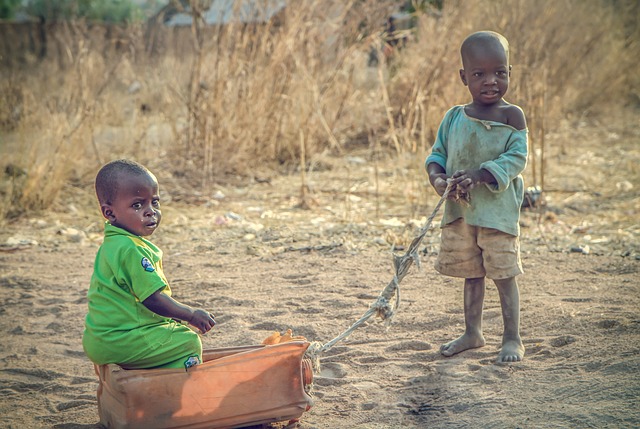
Just a week following the Fulani militant kidnapping of Bethel Baptist High School students, respected Nigerian Bishop of Sokoto, Matthew Kukah, virtually testified at a hearing of the Tom Lantos Human Rights Commission called The State of Religious Freedom Around the Globe. Bishop Kukah’s remarks focused primarily on the aforementioned points, and he made a compelling plea for “practical, measurable forms of assistance than can help us to change lives” and ensure the safety of Nigerian students. In response to his wonderful and remarkably accurate testimony of the state of absolute insecurity in Nigeria, the Nigerian Presidency publicly castigated Bishop Kukah and claimed that he had sensationalized the issues and sought to misrepresent Nigeria as a means to exacerbate ethnic and religious tensions. Jubilee Campaign has since published a rejoinder in defense of Bishop Kukah and pointing out the inaccurate and inflammatory remarks the the Nigerian presidency made in regards to Bishop Kukah and his testimony.
With regards to the aforementioned trend in which criminal groups conduct abductions of schoolchildren, Jubilee Campaign remains deeply concerned at the prospect of these children and young women being pushed into servitude by their captors. UNICEF reports that criminal gangs have abducted 1,436 Nigerian children, with 16 children dead in 2021 alone and more than 200 still missing. International Committee on Nigeria (ICON) has, as of June 2021, reported over 2,557 individuals abducted and 2,197 killed by Boko Haram, Islamic State West Africa Province (ISWAP), radical Fulani militants, and other criminal groups. A large portion of those abducted are women and girls who are subjected to domestic servitude, sexual slavery, forced marriage, and coerced religious conversions.
To address these issues, Jubilee Campaign is teaming up with the Sovereign Order of Malta to host a virtual side event to the United Nations General Assembly Third Committee titled On Stemming the Role of Criminal Groups in Contemporary Slavery Within Nigeria, with a focus on women and children. Taking place Friday, 29 October 2021, we will be hosting a variety of distinguished speakers, including UN Special Rapporteur on Contemporary Forms of Slavery, Mr. Tomoya Obokata; His Excellency Professor Michel Veuthey, Ambassador of the Sovereign Order of Malta to combat and monitor trafficking in persons, and more.
Pakistan
In Pakistan, week after week Jubilee Campaign watches on in horror as religious minorities such as Christians and Hindus are accused of blasphemy, convicted, and put behind bars for years on end without so much as a fair trial or an opportunity to prove their innocence. Often, they are imprisoned under dubious circumstances and with insufficient evidence. However, it is essential to highlight that regardless of any individual’s act of blasphemy, laws criminalizing blasphemy and apostasy (religious renunciation or conversion) are incompatible with human and personal rights:
“Blasphemy is the ‘act of expressing contempt or a lack of reverence for God or sacred things.’ For the purpose of this study, laws prohibiting blasphemy (‘blasphemy laws’) include provisions of country laws that criminally sanction defamation of religion and seek to punish individuals for allegedly offending, insulting, or denigrating religious doctrines, deities, symbols, [etc.] Blasphemy laws generally are deemed to be inconsistent with international human rights standards, violating international standards of the rights to freedom of expression (FoE) and freedom of religion or belief (FoRB).
United States Commission on International Religious Freedom, Violating Rights: Enforcing the World’s Blasphemy Laws
We would like to highlight some of the Pakistani prisoners of conscience who are currently imprisoned for blasphemy and whose cases Jubilee Campaign is actively engaged in:
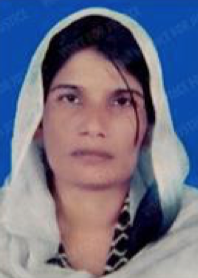
Shagufta Kiran
In July 2021, Pakistani Christian woman Shagufta Kiran was arrested without warrant in her home by authorities with loaded guns. Shagufta’s husband, Rafique, explains that she was detained because she had shared an allegedly blasphemous post in her WhatsApp group. Rafique also noted that he believes his wife to be targeted specifically for her faith, as the message had likely already been forwarded hundreds of times before it even was shared by Shagufta. What, other than her minority faith, could have caused her to be specifically targeted for arrest.
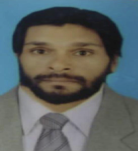
Stephen Masih
Stephen Masih was engaged in a verbal dispute with his family when he made some rude remarks to a Muslim female neighbor. The following day, the woman’s husband returned to Masih’s home with an angry mob that would then physically assault Masih and accuse him of blasphemy. Masih’s sister has denied that he made no blasphemous remarks whatsoever. Masih’s family has also been working for his release on account of his mental disability. After months of pressure, a medical board reviewed Masih’s mental condition, and they withheld the results for over a year before confirming that Masih suffers from Bipolar Affective Disorder which affects Masih’s cognition and ability to think clearly and make judgement. Despite the finding that Masih is unfit to stand trial, he remains imprisoned to this day

Nadeem Samson
Authorities arrested Pakistani Christian man Nadeem Samson in November 2017 after two men accused him of posting blasphemous remarks on his Facebook page. Samson’s family has repeatedly insisted that the allegations were fabricated to settle scores from a previous property dispute. Prior to the allegations raised against him, Samson had been leasing a room from his future accuser. When Samson requested for his returned deposit – as had previously been agreed upon – his accuser became angry and it is believed he created a fake Facebook accound using Samson’s name in order to frame him for blasphemy. Samson currently resides in prison and is not receiving medical treatment for his kidney stones and worsening mental health.
Letter to UN Special Rapporteur on the Rights of Persons With Disabilities: Ensure Justice for Stephen Masih:
Letter_Stephen_Masih_SR-Disabilities_Submission to the UN Human Rights Council: Arbitrary Detention Cases in Nepal, Algeria, Pakistan
Arb-Det5756_A_HRC_48_NGO_Sub_EnAfghanistan
In the days and weeks leading up to the fall of Afghanistan to the Taliban, and in the days and weeks directly following, Jubilee Campaign participated in numerous letter-writing initiatives to raise our concerns that religious minorities stranded in Afghanistan after the American troops’ withdrawal would be subjected to persecution, violence, and more at the hands of the Taliban:
“In recent days we have received numerous heart-wrenching images from our sources on the ground depicting thousands of Afghan refugees wading through sewage water outside of the Hamid Karzai Airport, desperate to flee. We therefore feel the distress of Afghan civilians, empathize with the desperation for security and safety, and share the frustration at the sudden and poorly executed withdrawal of American troops which has left at risk of violent subjugation millions of Afghans, including collaborators with the US, women and children, and ethnic and religious minorities.”
“We are concerned for Afghan Christians who have in recent days been receiving menacing phone calls in which ‘unknown people say ‘We are coming for you”, and letters threatening interrogation and prosecution for those who refuse to turn themselves in. With the dark memories of earlier Taliban rule freshly resurfacing – in which Christians were flogged, forcibly amputated, and publicly executed – many have shuttered themselves inside their homes and disconnected their cellphones in fear of vicious reprisal.”
“Ethnic Hazaras, predominantly Muslim, remember as if it was yesterday the alleged remarks by former Taliban commander Maulawai Mohammed Hanif in the 1990s that “Hazaras are not Muslims, you can kill them.’ What ensued was the murder of 70 Hazaras in Quzelabad in September 1997 and the execution of 2,000 Hazara civilians in August 1998, during which young boys were shot and girls were kidnapped and raped. Other religious minority communities – Sikhs, Bahai’s, Zoroastrians, Jews, Buddhists, Hindus – though they have not yet come under Taliban threat – have expressed their desire to escape the country.”
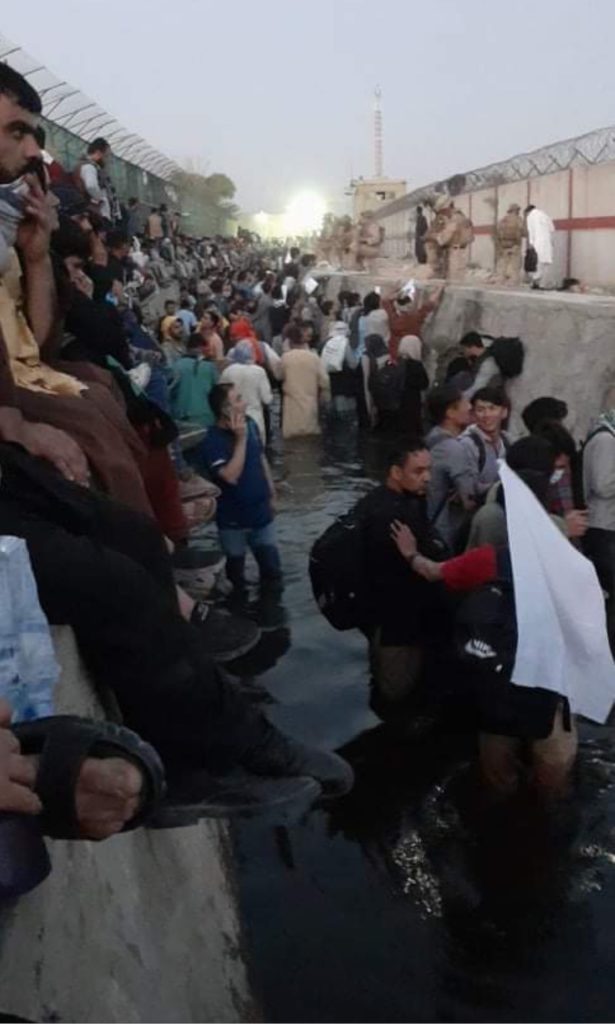
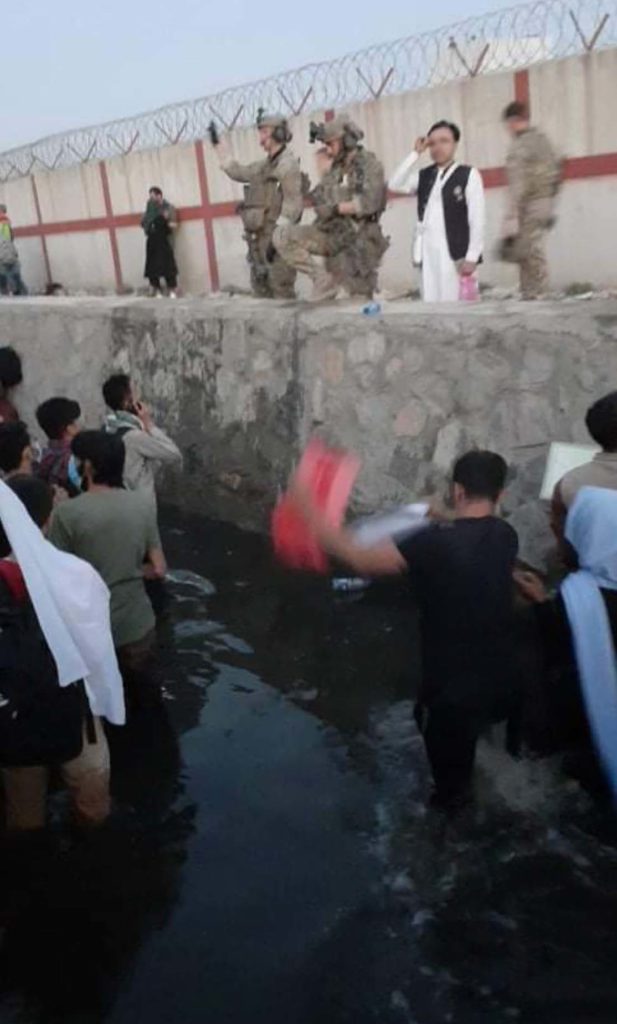
Jubilee Campaign Statement on the Situation in Afghanistan
Afghanistan-Statement-FinalLetter to President Biden: Emergency Protection and Evacuation of Afghan Religious Minorities
2021_9-1_Letter_to_President_Biden_FinalRefugee Council USA Letter on the Situation in Afghanistan
RCUSA-Letter-to-President-Biden-on-Afghan-SIVs-July-8-2021-1Algeria
In December 2019, the Algerian government arbitrarily shut down and boarded up 13 Protestant Churches for their alleged failure to comply with health and safety requirements as well as permit requisites. During the COVID-19 pandemic, for the main purpose of preventing the spread of the coronavirus in close spaces, all houses of worship, including mosques, were temporarily closed regardless of the faith they represented. When mosques began to reopen, however, the 13 Algerian churches remained closed; the government continued to insist that these Protestant churches were neither up to code nor held permits for their buildings. Jubilee Campaign submitted a rejoinder to the Algerian government in which we revealed that: (1) our sources on the ground have confirmed that these Protestant churches have made all necessary safety and construction renovations to meet the standards to reopen; and that (2) they have applied for operation permits a multitude of times, only to be ignored by the National Commission for Non-Muslim Religious Groups which is legally mandated to process permit applications swiftly. In result, these churches are forced to operate illegally despite their genuine attempts to obtain legal status. In our rejoinder, we definitively proved contrary to the government’s false claims of non-discrimination in the management of houses of worship. We also highlighted the use of blasphemy laws to disproportionately target religious minorities – most often Christians and Ahmadiyya Muslims – for prolonged imprisonment. Some such cases are discussed below:

Suleiman Bouhafs
In 2016, Suleiman Bouhafs was arrested in Algeria for his Facebook posts criticizing Islam, and he was charged with blasphemy before being sentenced to three years in prison. After receiving a presidential pardon, Bouhafs fled Algeria and rebuilt his life in neighboring Tunisia; while there, Algerian authorities accused Bouhafs of terrorism for his alleged membership in a self-determination organization while in Algeria. In late August 2021, authorities abducted Bouhafs from his home in Tunis and repatriated him to Algeria, where it is likely he will face formal terrorism charges. Numerous reports have also stated that Bouhafs currently has multiple bogus charges against him, including terrorism, attempting to overthrow the regime, offending Islam, (blasphemy), and undermining national unity.

Hamid Soudad
Hamid Soudad was arrested in January 2021 by Algerian authorities for sharing an allegedly blasphemous cartoon on Facebook three years earlier in 2018. Without providing Soudad access to legal counsel or a fair trial, an Arzew court charged Soudad with “insulting the Prophet of Islam” and sentenced him to the maximum 5-year imprisonment term. By March, Oran City Court denied Soudad’s appeal; Soudad’s lawyer, Farid Khemisti, has expressed that he believes Soudad is being targeted for his Christian faith, as the penalty deviates from previous practice in which authorities apply milder sentences for sharing blasphemous posts than for authoring them. Moreover, Soudad was arrested an entire three years following the allged crime.
